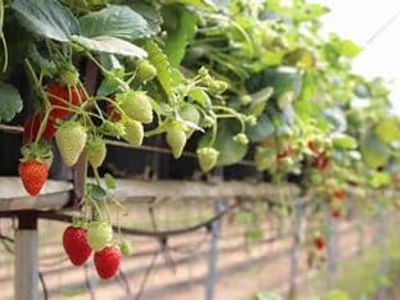Title: Cultivating Sustainability: The Imperative of Modern Agri
Introduction:
Agriculture, often regarded as the backbone of civilization, has traversed epochs, evolving from rudimentary practices to sophisticated, technology-driven systems. Its significance extends beyond mere sustenance, encompassing economic, environmental, and societal dimensions. In this essay, we delve into the multifaceted realm of agriculture, exploring its historical roots, present challenges, and the imperative of sustainability in shaping its future trajectory.
Historical Context:
The narrative of agriculture is deeply interwoven with human history, marking the transition from nomadic lifestyles to settled societies. The Neolithic Revolution heralded a pivotal shift, as hunter-gatherers embraced cultivation, birthing the first agricultural communities. Subsequent millennia witnessed the rise of agrarian civilizations, from the fertile valleys of Mesopotamia to the terraced fields of ancient China. Agrarian societies not only flourished but also laid the groundwork for cultural, scientific, and economic advancement.
Modern Agriculture: Challenges and Innovations:
The advent of industrialization catalyzed a paradigmatic shift in agriculture, ushering in an era of mechanization and intensification. While these advancements bolstered productivity, they also precipitated ecological repercussions, including soil degradation, water scarcity, and biodiversity loss. Moreover, the consolidation of agricultural practices has marginalized small-scale farmers and engendered concerns regarding food security and equity.
Amidst these challenges, modern agriculture stands at a crossroads, beckoning innovation and sustainability. The integration of precision farming, biotechnology, and data analytics offers promising avenues for optimizing resource utilization and mitigating environmental impact. From genetically modified crops resilient to pests and droughts to smart irrigation systems minimizing water wastage, technological innovations are revolutionizing agricultural landscapes worldwide.
Sustainability Imperative:
Central to the discourse on modern agriculture is the imperative of sustainability. Sustainable agriculture entails a holistic approach that balances economic viability, environmental stewardship, and social equity. At its core lies the principle of resilience, fostering agricultural systems capable of enduring climatic variability and ecological perturbations.
Agroecology emerges as a beacon of sustainable farming practices, advocating for diversified cropping systems, agroforestry, and integrated pest management. By harnessing natural processes and promoting biodiversity, agroecology not only enhances soil fertility and water retention but also fosters ecosystem resilience.
Furthermore, sustainable agriculture transcends field practices, encompassing equitable land tenure, fair labor practices, and community empowerment. It underscores the intrinsic linkages between agriculture, livelihoods, and rural development, advocating for inclusive policies that prioritize the well-being of farmers and rural communities.
Conclusion:
In conclusion, agriculture stands as a cornerstone of human civilization, embodying our intimate relationship with the land and the sustenance it provides. Yet, in an era fraught with environmental crises and socioeconomic disparities, the imperative of sustainability looms large. By embracing innovation, promoting agroecological principles, and fostering inclusive policies, we can cultivate a future where agriculture thrives in harmony with nature, ensuring food security, environmental integrity, and societal well-being for generations to come.
Like this project
Posted May 8, 2024
"Utilizing cutting-edge technology, this project revolutionizes agriculture by optimizing resource use, improving crop yields, and reducing environmental impact






